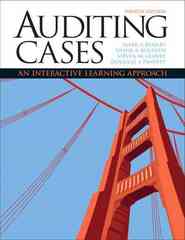Question
The disposition effect has been characterized in various ways: the effect, whereby investors are anxious to sell their winners, but reluctant to sell their losers
The disposition effect has been characterized in various ways: the effect, whereby investors are anxious to sell their winners, but reluctant to sell their losers (Shefrin 2005, 419); the tendency to hold losers too long and sell winners too soon (Odean 1998, 1775), and the effect, whereby investors sell winners more readily than losers (Odean 1998, 1779). Basically, the disposition effect says investors will sell winners and hold losers. The key point is there is nothing irrational about this behavior. It is consistent with maximizing expected utility (a la von Neumann and Morgenstern) given that the investor has the S-shaped utility function of prospect theory. (This is the same paragraph as the first paragraph in #3.) Warren Buffett recently sold his 10% stake in each of the four major US airlines, each of which had declined in stock price quite severely. In doing so, Buffett violated the disposition effect on losers he sold losers where the disposition effect said he would hold losers. Explain why Buffett was correct to sell his shares in the US airlines. That is, explain why Buffett was correct to violate the disposition effect on losers.
Step by Step Solution
There are 3 Steps involved in it
Step: 1

Get Instant Access to Expert-Tailored Solutions
See step-by-step solutions with expert insights and AI powered tools for academic success
Step: 2

Step: 3

Ace Your Homework with AI
Get the answers you need in no time with our AI-driven, step-by-step assistance
Get Started


